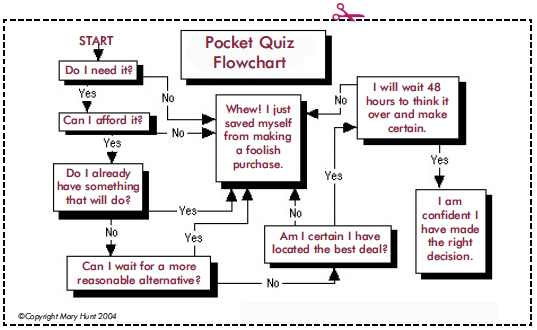This is Contentment: Want What You Have, Buy What You Need
Years ago, I read in The New York Times that according to Yankelovich Research, the average American adult is the target of some 3,500 commercial ads in a single day.
Fast forward to 2021, and although there are no official figures, the average person is now estimated to encounter between 6,000 to 10,000 ads every single day. How outrageous is that? Sure, we live in a highly commercialized society but 5,o00 commercial ads? In a single day? I figured that had to be a gross exaggeration.
Not me
I decided to conduct my own test. I would count the ads I heard or saw in my typical day. I knew it wouldn’t come anywhere close to 5,000. Or even 3,500. I’d prove them wrong and at the same time validate myself.
The next morning the radio alarm sounded and before I could even open my eyes, I needed to put two hash marks on my score pad. So prolific were the ads on TV I could barely keep an accurate count and get ready for the day at the same time.
Of course, I had to count every message, banner, business placard, real estate sign, billboard, license plate frame, bumper sticker, commercial vehicle, and bus I saw on the way to work all the while being careful not to miss any radio ads. Good thing I wasn’t driving.
Reading the newspaper boosted my count significantly as did flipping through a few magazines. Have you ever counted the ads in a typical magazine? Try it sometime.
Logging onto the Internet shot my count through the roof. The mail arrived at 10:00 a.m., and that’s when I surrendered. Not only was it impossible to get anything done while counting the commercial influences on my fairly low-key, ho-hum kind of a day, but I also couldn’t keep up with the pace. It was a mind-boggling exercise.
10,000 ads per adult per day? Easy! In fact, I’ll bet, that in reality, it’s a lot more than that.
I recalled that day recently when I got an email message from Barbara, one of my loyal readers:
How can I overcome the feeling of wanting something I just can’t have, a new house, or a car? I often feel discouraged and angry at myself, instead of feeling joy and being grateful for what I have.
Before I reached the last word of her note, I was identifying with her. I know that feeling—I am so familiar with wanting and being constantly dissatisfied.
The answer and antidote to that nagging feeling of dissatisfaction is to find contentment. But how can we do that? I’ve discovered the truth in these eight little words:
Want what I have, buy what I need
Sounds simple enough, but achieving that can be a challenge. Here’s my advice to Barbara, and all others who have become over-commercialized to the point of being constantly dissatisfied:
Attitude
I know this sounds simplistic, but it’s the truth: You have complete control over your thoughts. You can choose to think about what you don’t have or be grateful for what you do have.
Write down the top ten things for which you are grateful. Be honest, thoughtful. Then choose to think about those things.
Determine to love your home. Be kind to it. Clean it, adore it, make it a place where you feel accepted for who you are. Be grateful that you even have a place you can call home then let it fill you with contentment.
Insulate
When, with genuine gratitude you choose to want what you have, you build a layer of insulation around your life that will protect you from the harshness of over-commercialization.
Reading the fine print, analyzing what clearly is too-good-to-be-true, and questioning outrageous commercial messages are also good ways to increase that protective layer of insulation that will allow you to find contentment.
Isolate
If you are easily dissatisfied or prone to impulsive behaviors, identify your weak spots then isolate yourself from them. Turn off the television. Skip past the magazine ads. Isolate yourself from mindless shopping. Throw mail-order catalogs in the trash unopened (and I mean the smelly trash so you won’t be tempted to retrieve them). Put distance between you and places you are most likely to slip back into your old ways of spending beyond your money before you have earned it. Let yourself know that you’re not entitled to live beyond your means
Self-talk
Confronting yourself is a great way to build your strength against the strong current of temptation to spend beyond your ability to pay. Ask yourself these questions and then expect honest answers:
- Do I need this?
- Don’t I have something already that will do just as well?
- Am I sure this is a good value?
- Do I have the cash to pay for it?
- Could I delay the purchase for a few weeks?
- Am I willing to sit on my decision for 24 hours before acting?
Never feel you must apologize for choosing the high road when it comes to managing well the money that flows into your life. If you’re embarrassed to say, “I can’t afford it,” say instead, “I just don’t choose to spend my money that way.”
● Living below your means creates a margin between you and the financial edge.
● Living below your means is the way to build wealth, reduce stress, and increase options.
● Living below your means increases peace of mind.
● Living below your means is an honorable way to conduct your life.
Practice gratitude
Gratitude is the secret to contentment—that wonderful serene place where we find satisfaction and joy in choosing to enjoy what we have, not what others have or make us believe we should have. Immerse yourself in gratitude today and every day!



















I keep a gratitude journal. Small pocket-sized book that contains things i am thankful for. I write in it every day, as a reminder to be appreciative of health, family, infrastructure city provides with tax funding, freedom to travel, living in America, The US Constitution, financial security, etc, etcetc…
Love this, Francina. God bless America!
Love this article. I do this, thanks to you! I also ask myself
If I buy this, where will I put it?
Do I have a place to store or display this item?
Mary,
Thank you for reposting this article. I carry your Pocket Quiz Flowchart in my handbag, as a reminder!! I believe I am the Barbara, you mention. It’s nice to be famous! 🙂 Happy Holidays to you and yours, Cheers Always, Barbara
My father taught me about money. He said, “The thing about money is: you can only spend it once. Then it’s gone. So before you spend anything, you have to know what is the most important thing you have to pay. When you have enough money to pay for all the things you MUST pay for, only then do you have “money left over” and if you are smart you will save it for emergencies you didn’t see coming.” Sixty + years later, I’m in a very good place. Thanks Dad.
I don’t own a TV. Have satellite Internet (which means too slow to download movies, even You Tube isn’t great). Don’t subscribe to magazines or newspapers. It is very easy to ignore all the ads on EVERY website, as I have convinced myself they are all scams, anyway. Don’t listen to anything but Audible in the car (my average comute is 1.5 hrs).
I’m good
I have a shopping addiction. It took me a long time to figure out that advertisers were not my friends. I wanted them to like me but the reality is they never would. It did not matter how much I bought the result was still the same, empty.
Richard has the right idea. I record everything on the TV that I watch. Should I actually have time to sit down & watch it while it’s in real time, I merely mute all commercials and read a book or take a break, then unmute when the show returns. When I’m watching a show from the recording, I merely fat forward through the commercials. I stopped delivery of my newspaper because of the ads. I realized a long time ago that when I went through the ads from the paper or ever flyers that come through the mail, all at once I “needed” some of the things advertised. Now, if I actually need something, I write it down and I even surprise myself because when I’m ready to shop, I find that I really don’t “need” some of the things I wrote down. Works for me.
Between the mute button on the TV remote and the delete button on the computer, I can ignore almost all advertising that is inflicted upon me. Anyone buying anything due to advertising is showing a lack of discretion. The last part of the title says it all, buy only what you need. You decide!